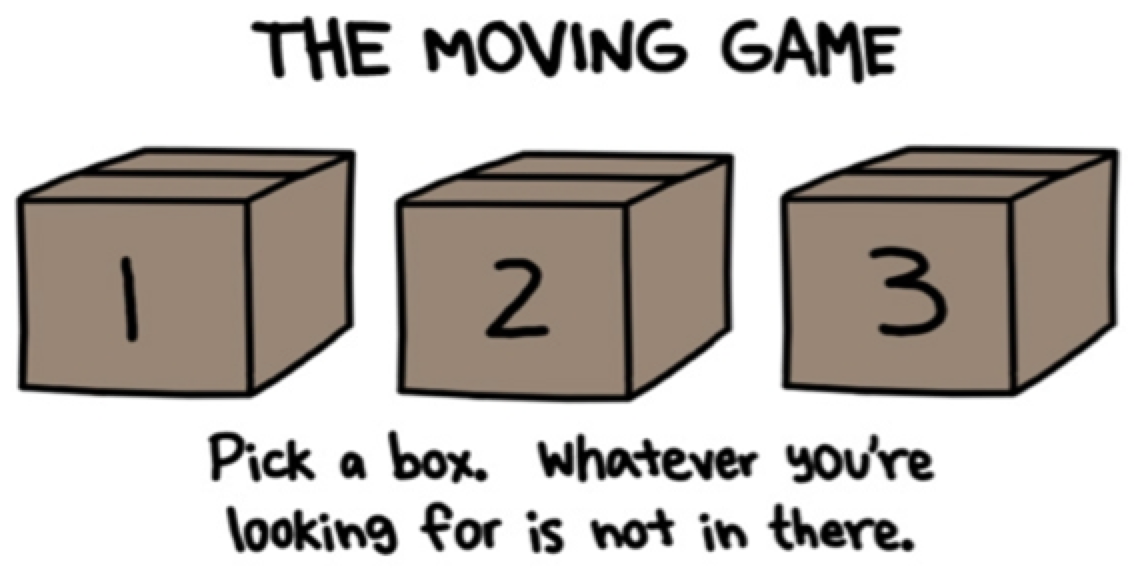Amazing how much useless stuff one company, one family or one individual can collect after nearly three decades of nesting in a location. For the better part of three months now, SMZ has celebrated “throw away Thursdays,” shifting into full disposal mode shedding documents, print samples, ancient broadcast reels, collectibles and piles upon piles of media plans and proposals that date back to the Reagan presidency.
I guess it’s human nature to somehow think that once we push it into a basement storage bin that we’re capable of finding and identifying a critical sample or essential document once its relegated to a “banker’s box” status. These are indeed tearful times for hoarders and the paper people who now must fully embrace the iCloud and e-file era of SMZ’s new digs.
Couple all that with anxiety about migrating from the security and solitude of closed door office dwellings to open and shared spaces, and it suddenly threatens our sense of comfort and place.
Of course that disruption is precisely the point and the purpose behind this big move. Like any business, we need disruption to survive and thrive. It stimulates thought, adds perspective and gets everyone engaged at almost all levels. This truly is the natural order of things for SMZ to be stepping into space that fits our world, our process and our work much more effectively.
The deliverable in all of this purge and pack chaos: collaboration. It stimulates interaction, connection and a consistent exchange of ideas—exactly what any business needs every minute of every day. It exemplifies the theory that many heads and brain cells working together are more power-laced than a singular effort or individual genius. If you think about it, our industry truly is one big team sport that relies on cooperation and interaction to get us through every stage of Listen, Think, Do.
Now, if I could just remember where I packed that stapler …
Rich Williams, SVP/Strategic Business Development


Alan Stamm
As a fellow word nerd, Rich, I salute your deft use of apt imagery (“nesting,” “migrating,” “natural order”) and your explanation of how the agency adapts to its business environment by settling in a new space.
“Security and solitude” are no way to incubate and hatch strong ideas, clearly.
Those vivid metaphors are . . . well, a feather in your cap.